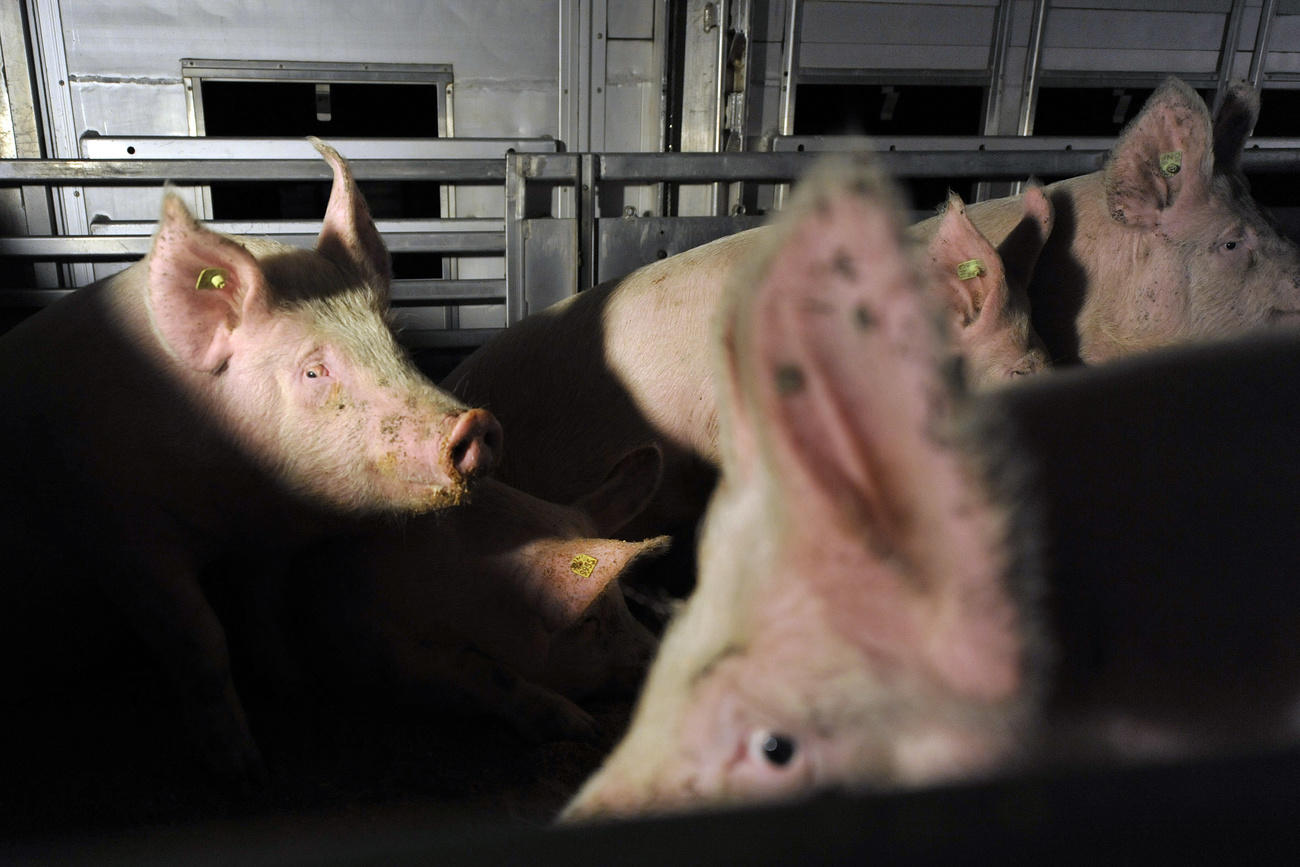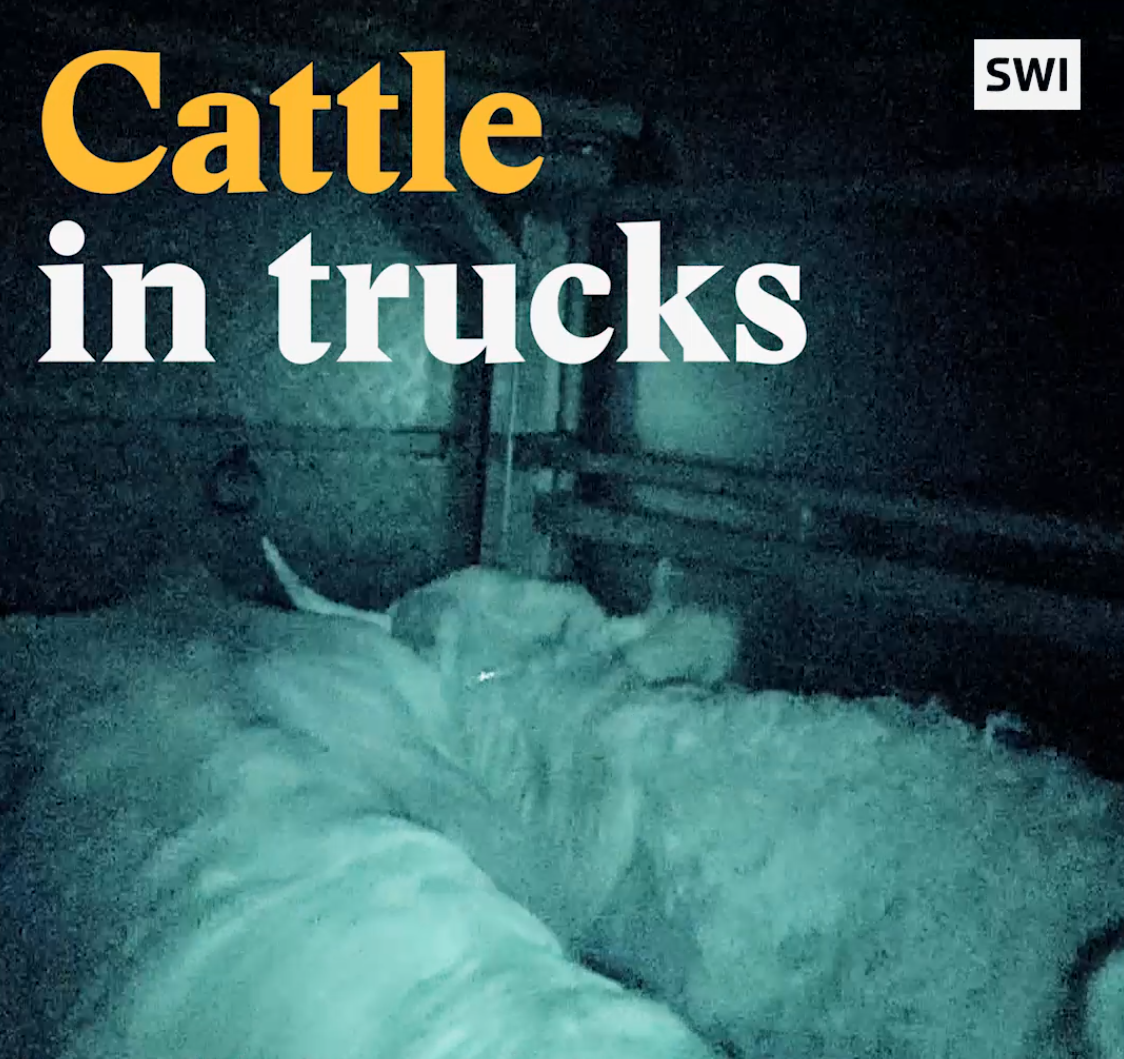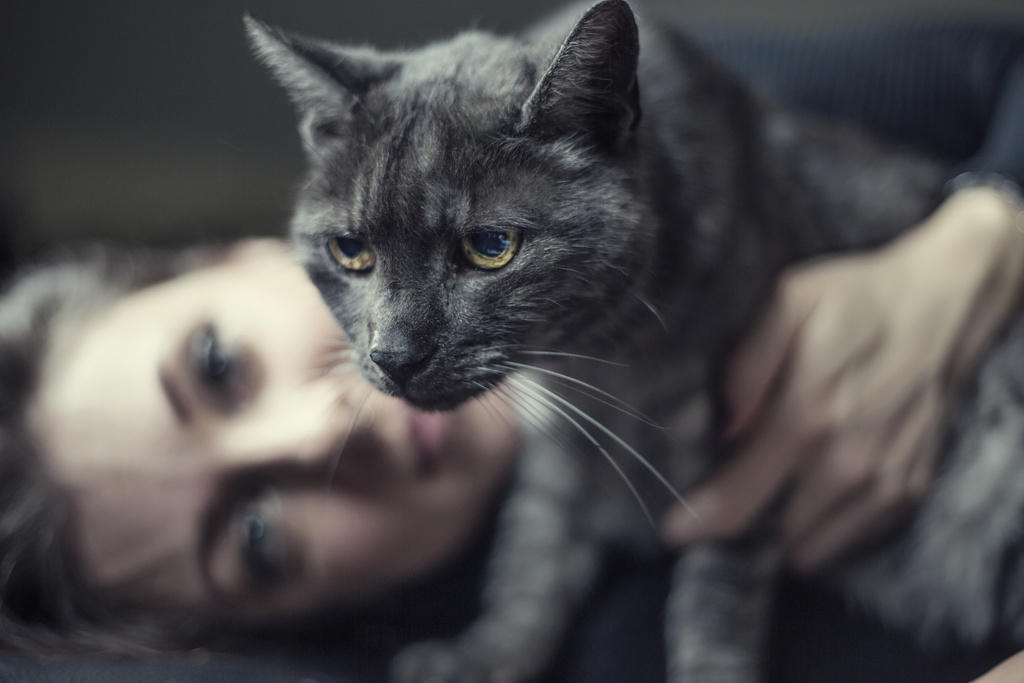
Animal welfare rules not fully respected in some Swiss abattoirs

Conditions in some Swiss slaughterhouses still don’t conform to standards guaranteeing animal welfare, the Federal Food Safety and Veterinary Office announced on Tuesday.
Many of the problems found by the nationwide investigation were related to animals being kept overnight without sufficient water, food, or bedding.
The stunning and bleeding of animals – done in preparation for a painless slaughter – was also not always adequate. This was particularly the case for big pigs, for whom the electrical stunning device was not strong enough, the office said.
For cattle, meanwhile, the period of time between stunning and bleeding was also often found to be too long.

More
Even on their way to be slaughtered, animals have rights
Lack of awareness
Small-scale abattoirs were particularly liable to fall below standard, the office said. Reasons for this were often lack of training or awareness of standards, hectic work rhythms, and limited time available for the slaughtering.
A lack of oversight by veterinarians and bad documentation of practices is also an issue, again especially for smaller slaughterhouses. Even when vets are present, they often concentrate on the health of the animal before killing and the state of the meat after, rather than on welfare during the slaughtering process.
The veterinary office says it is considering revising certain regulations, including those covering stunning procedures. It is also analysing the training opportunities for abattoir workers.
A total of 67 places across the country were examined, or around 10% of all slaughterhouses. Those chosen, however, were not necessarily representative of the overall situation, since the veterinary office specifically targeted abattoirs previously found to be sub-par.

More
How well are Swiss animals protected?

In compliance with the JTI standards
More: SWI swissinfo.ch certified by the Journalism Trust Initiative






























You can find an overview of ongoing debates with our journalists here . Please join us!
If you want to start a conversation about a topic raised in this article or want to report factual errors, email us at english@swissinfo.ch.